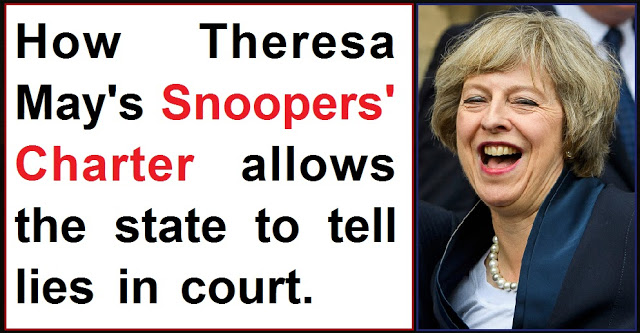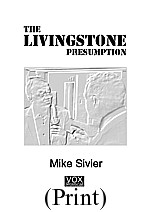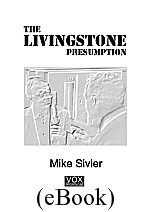If the Snoopers’ Charter allows the state to lie in court, how can the innocent foil it?
Under UK law, the prosecution must provide full disclosure of its evidence to the defence.
Why not simply ask prosecuting solicitors or barristers how they obtained it?
If s.56 of the Investigatory Powers Act demands that lawyers must lie about how they got it – or, alternatively, I suppose they could say they are not at liberty to divulge that information – then the defence may disprove the case by showing that it was impossible for the state to know what it claims except by spying.
There would be no need to make any suggestion that spying had happened; all the defence has to do is show that the information could not have been obtained any other way.
With no legal ability to reveal how the information came into its hands, the Prosecution would have no way to prove that the evidence was factually accurate.
Am I mistaken?
It turns out that the Snoopers’ Charter has enshrined Parallel Construction into UK law, which means that agents of the state will be allowed to tell lies in court in order to secure convictions, and furthermore it bans anyone from questioning those lies.
The relevant part of the Investigatory Powers Act is Section 56. The section is written in the usual kind of impenetrable language used in government legislation. I’m going to spell out in simple English what section 56 legislates. If you want to cross-reference my layman’s explanation with the actual wording of the act, click the green link above.
- 56 (1) In British courtrooms and Inquiries it is now forbidden to make disclosures that would
(a) reveal that evidence was obtained by spying.
(b) suggest that spying has ever been going on, may have been going on, or may go on in the future.
- 56 (2) Details all of the actions that are defined as spying (“Interception-related content”)
- 56 (3) A list of people who people who are able to act as spies, which includes police chiefs, spy chiefs, the head of HMRC, the head of the defence staff, the heads of non-British agencies with whom the British government is sharing information, any person holding office under the crown, anyone working for the police, anyone working for HMRC, anyone working for a postal service, anyone working for a telecommunications provider, anyone working as a subcontractor for a postal service or telecommunications company.
- 56 (4) Retroactive clauses to prevent the prosecution of people who were doing this kind of spying unlawfully before the Snoopers’ Charter became law in November 2016.
Section 56 of the Snoopers’ Charter is really alarming stuff because it creates a legal obligation on prosecutors to lie in court about how their surveillance-related evidence was obtained, and it also prevents defence lawyers from presenting proof that evidence was obtained by spying, or even suggesting that the evidence might have been obtained by spying.
Some people have tried to suggest that this legislation weakens the prosecution position by creating doubts over whether they are telling the truth or not, but any defence lawyer who ever tried to even point out the section 56 legislation that obligates the prosecution to lie in court about the sources of their evidence would be in breech of section 56 (1) (b) for suggesting that spying could have been going on.
Aside from the Snoopers’ Charter creating legal obligations for witnesses to lie in court, and gagging defence lawyers, section 56 is also deeply concerning because of the retroactive clauses.
Source: The Snoopers’ Charter allows the state to lie in court
Join the Vox Political Facebook page.
If you have appreciated this article, don’t forget to share it using the buttons at the bottom of this page. Politics is about everybody – so let’s try to get everybody involved!
Vox Political needs your help!
If you want to support this site
(but don’t want to give your money to advertisers)
you can make a one-off donation here:
Buy Vox Political books so we can continue
fighting for the facts.
The Livingstone Presumption is now available
in either print or eBook format here:
Health Warning: Government! is now available
in either print or eBook format here:
The first collection, Strong Words and Hard Times,
is still available in either print or eBook format here:










I believe you are correct, by introducing doubt the case can’t be proven beyond all reasonable doubt.
I’d like to add that in response to a petition to repeal the IPA, Parliament have explicitly refused to debate the issue.
I’ll CnP the response to the petition when I can. It makes for some anxious reading.
Dear TomMagenta,
The Petitions Committee decided not to debate the petition you signed – “Repeal the new Surveillance laws (Investigatory Powers Act)”
The Petitions Committee has decided not to schedule a debate on this petition. When it decides which petitions should be debated, the Committee looks at whether the subject has recently been debated by the House of Commons.
The Investigatory Powers Bill was debated on many occasions in Parliament before it became law. You can read all the debates here:
http://services.parliament.uk/bills/2015-16/investigatorypowers/stages.html
Before it was introduced into Parliament, the Bill was investigated by a Committee of MPs and Members of the House of Lords, who heard evidence and produced a report with recommendations about the Bill. You can find out about the work of that Committee here:
https://www.parliament.uk/business/committees/committees-a-z/joint-select/draft-investigatory-powers-bill/
The petition: https://petition.parliament.uk/petitions/173199
Find out more about the Petitions Committee: https://petition.parliament.uk/help#petitions-committee
Thanks,
The Petitions team
UK Government and Parliament
And of course personal information falling into the wrong hands from inside sources which as has been proven many times will happen. Even Gov. departments have been penetrated and systems broken into from clever outside sources. Governments history has always been sort out the barn door when horse bolted = damage done.. Worse what is to stop the alleged information being tampered with and no way a third party being able to challenge the additional lies added to ensure a conviction. Police state now being legalised.
While normally this would be true (if the prosecution cannot prove that information obtained to secure a conviction was accurate and obtained lawfully) this section actually makes it illegal to ask if the information was accurate and obtained lawfully.
Specifically, section 56(1) states that no questions can be asked, inferred or implied on evidence obtained through interception (spying) in a court case and makes unlawful interception (based on section 3 Offence of unlawful interception) no longer a valid reason for throwing out a case or quashing a conviction, since the defence team are forbidden from even hinting that unlawful activity could have taken place, now or in the past, to obtain the information that led to a conviction!
Essentially, Section 56 makes it illegal for prosecution lawyers to disclose how information was obtained and for defense lawyers to question how such information was obtained, and stops courts from being able to follow due process on information during a court case that the information provided is accurate!
Yes, but nobody actually needs to ask, infer or imply that the evidence was gained through spying, do they?
All they have to do is ask HOW the evidence was gained. Then the onus is on the prosecution to explain. And, since they are also legally bound not to infer or imply that it was gained through spying, what are they going to do?
The defence team isn’t banned from hinting that ANY unlawful activity has taken place, by the way – it’s just spying.